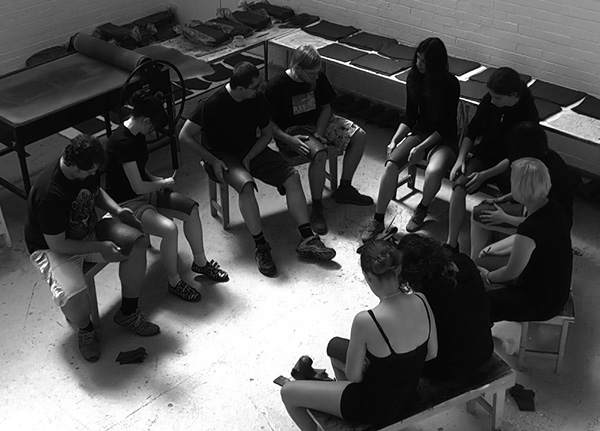
HOME
first performed on
July 14, 2011
Newcastle University, Newcastle, UK
performed once in 2011
ISABEL LIMA
in collaboration with Goska Bialek, Laura Butautaite, Goska Chalupka, Michal Chantkowski, Daniel Krzyszczak, Danuta Kudlacik, Katarzyna Petrowska, Tymoteusz Sulek and Dominik Wilczynski
481040395i481040395s481040395a481040395b481040395e481040395l481040395l481040395i481040395m481040395a481040395.481040395p481040395r481040395o481040395j481040395e481040395c481040395t481040395s481040395@481040395g481040395m481040395a481040395i481040395l481040395.481040395c481040395o481040395m
HOME
ISABEL LIMA
“Home” is a collaborative project that attempts to bring forward the question “what makes a home?” and how this concept can be articulated both through the relationship between body and space and between self and other. In this project, roof tiles are made using an old Portuguese technique of molding terracotta on human thighs.
Portuguese farmers made this tile, before the introduction of mechanized industrial methods, in the summer months with terracotta sourced in their own fields. This type of tile can also be found in Brazil, once a Portuguese colony, where slaves produced them around the 16th and 17th centuries. This method of construction wasn’t very appreciated since the tiles would have variable shapes and sizes according to different thighs from different people. This became a problem when assembling the roof, which always resulted in a poor and heterogeneous finish. This project becomes a metaphor for how through the expenditure of energy and manual labour, one has a sense of ownership and belonging to a place. How the shapes of one’s own body become the shape of their shelter.
For the production of this shelter, I am collaborating with a group of nine immigrants living in the North East. Being myself an immigrant in the UK, I felt it was pertinent to explore the concept of “Home” with people who share that same circumstance. Together we share the workload, enter into dialogue, and get to know each other. The artwork initiates a conversation, an exchange which allows questioning and through which we establish commonalities and differences. Although we all share the same starting point, we all came from different countries to live and settle in a foreign country with different languages, structures, and culture, and we are all ultimately very different individuals. Political statements are made in a deflected manner by using the displacement of different historical and social contexts to draw some understanding of our present situation and enable the formation of cultural bridges. I am Portuguese, making work in the UK that references a Portuguese tradition, with the collaboration of Polish and Lithuanian immigrants. We can only assert ourselves in terms of from what we differ. We can’t define who we are, but through interactions with others, we can assert who we are not. We’re not only products of the places we’re from or the places we’ve been but also of longings for what we could be.